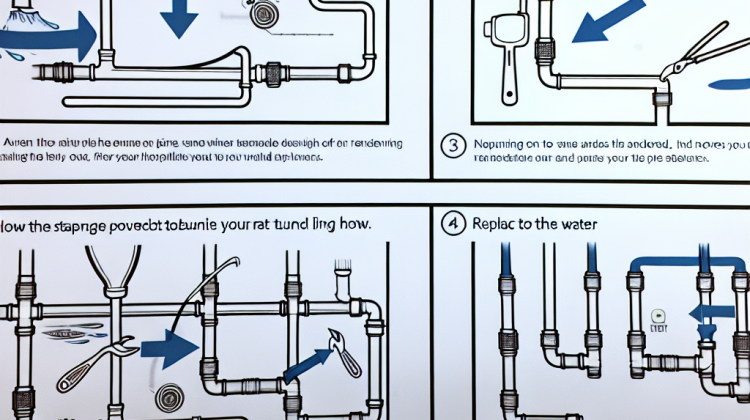
Did you know that clogged kitchen sinks are one of the top complaints for homeowners? That’s right! Every year, lots of people call plumbers to help with their kitchen plumbing problems. Taking care of your kitchen plumbing is super important because it helps keep your home running smoothly and saves you from big repair bills.
Thinking back, plumbing systems have been around for thousands of years. Ancient Romans were some of the first folks to enjoy running water in their homes. They built aqueducts and used pipes made from clay and lead! Now, we’ve got modern pipes and fancy fixtures, but the basics of plumbing stay the same. In today’s busy world, understanding how to take care of your kitchen plumbing is crucial. Just a little bit of maintenance can go a long way in avoiding messy disasters.
Imagine this: You’ve just finished cooking a big family dinner. You toss the leftovers down the sink, not thinking twice. Yikes! That’s one way to invite a clog. A neat solution is using a strainer. Placing a small strainer over the drain catches bits of food and keeps your pipes clear. Plus, did you know that about 80% of plumbing problems can be avoided with simple care?
Keeping an eye on your kitchen faucet can also make a difference. If you notice any leaks or drips, don’t just ignore them! A little drip might seem harmless, but it can waste a lot of water over time—up to 20 gallons a day. That’s like filling a whole bathtub every week! A quick fix can save you some cash on your water bill and stop big problems before they start.
And let’s not forget about the garbage disposal. This handy device can be a lifesaver, but it comes with rules! You shouldn’t grind up things like bones or fibrous veggies. These can mess things up faster than you can say “plumbing problem.” If it starts making weird noises or smells funkier than last week’s leftovers, it’s time to give it a little TLC.
Lastly, flushing hot water down the drain might sound odd, but it’s smart! Running some hot water helps break down grease and keep your pipes flowing free. Try doing this once a week, and your plumbing will thank you. You might not think about it often, but a few small habits can make a big splash in keeping your kitchen plumbing running well!
How to Maintain Kitchen Plumbing
Keep an Eye on Your Drains
Did you know that the sink is one of the busiest spots in your kitchen? If you want to avoid a messy situation, it’s smart to watch what goes down the drain. Grease, food scraps, and coffee grounds can get stuck in the pipes. So, here are a few easy tips:
- Always scrape food off plates before washing them.
- Use a drain strainer to catch small bits of food.
- Never pour grease down the sink — it cools and hardens, causing a blockage.
- Run hot water down the drain once a week to keep things flowing smoothly.
Regularly Check for Leaks
If you see water pooling under your sink or hear dripping sounds, you’ve got a leak! Leaks can waste a lot of water and money. Here’s how to keep those pesky leaks at bay:
- Inspect the pipes under your sink every month.
- Tighten any loose fittings with a wrench.
- If you find a leak, call a plumber or fix it yourself using a rubber washer.
Clear Out the Garbage Disposal
Your garbage disposal might be a workhorse, but it needs love too! To keep it running well:
- Run cold water while using it to help move food through the pipes.
- Occasionally grind ice cubes to clean the blades.
- Use lemon peels to keep things smelling fresh.
Mind the Water Pressure
Water pressure is important for everyday tasks. If it’s weak, it can be frustrating! You might try:
- Checking for kinks in the hoses if the pressure drops suddenly.
- Cleaning faucet aerators and screens to improve flow.
- Adjusting the water pressure regulator if your home has one.
Know When to Call a Pro
Sometimes, plumbing problems are more than we can handle. If you notice:
- Toilets that keep running or flush slowly.
- Strange noises from the pipes.
- Water stains on your walls or ceilings.
These could be signs of something bigger going on. It’s best to call a plumber if things start to go south.
Statistics to Keep in Mind
Believe it or not, poor kitchen plumbing costs families an average of $650 a year in repairs and water bills! Yikes, right? Keeping an eye on your plumbing can help save that money and keep your kitchen running smoothly.
How to Maintain Kitchen Plumbing FAQ
What are some signs my kitchen plumbing needs help?
If you see leaks, hear funny noises, or have slow drains, it might be time to take a look. Odors or water stains can also be clues that something’s not right!
How can I prevent my sink from clogging?
To keep your sink from clogging, make sure to toss food scraps in the trash, not the drain. Using a strainer can also help catch stuff that shouldn’t go down there!
What should I do if I see a leak under my sink?
First, don’t panic! Turn off the water to prevent more damage. Then, you can try fixing it yourself or call a plumber if it’s a big leak.
How often should I clean my kitchen drains?
Cleaning your kitchen drains once a month is a good idea. You can use vinegar and baking soda for a natural clean, and it works like magic!
Why does my kitchen sink smell bad?
Yikes! Bad smells can come from leftover food stuck in the pipes. Cleaning your drain regularly can keep those odors at bay!
Can I use hot water to unclog a drain?
You sure can! Pouring hot water down the drain can help break up grease and gunk. Just be careful if you have plastic pipes—they might not like hot water as much!
What’s the best way to deal with a stubborn clog?
If you have a tough clog, a plunger is your best friend. If that doesn’t work, a plumber’s snake can be super helpful to clear that blockage out!
Is it okay to pour grease down the sink?
Nope! Grease can solidify in your pipes and cause major clogs. Be sure to dispose of it in the trash instead.
How can I keep my plumbing in good shape?
Regular maintenance is key! Keep an eye on your pipes, clean your drains, and handle small repairs quickly. This will help you avoid big problems later.
Do I need a plumber for small repairs?
Not always! Some small things, like changing a faucet or unclogging a drain, can be fixed by you. But if you’re unsure, it’s okay to call in a pro!
Conclusion
To keep your kitchen plumbing in tip-top shape, it’s super important to pay attention to what goes down your drains. Avoid tossing leftovers, grease, or any big bits of food into the sink. Instead, scrape plates into the trash or compost before washing them. You can also use a drain strainer to catch gunk that could clog things up. And don’t forget to give your plumbing a good flush with hot water every now and then; this helps clear out any buildup that might be sneaky!
Another handy trick is to keep an eye out for any leaks or drips. If you notice water pooling under the sink or hear a drip-drip-drip sound, don’t just ignore it! Fixing small leaks quickly can save you a ton of trouble later on. Also, remember to check the dishwasher and any other appliances linked to your plumbing. Regular cleaning and care will keep your kitchen plumbing working smoothly, so you can focus on cooking up a storm without worrying about a plumbing disaster! Just follow these simple steps, and you’re golden!
